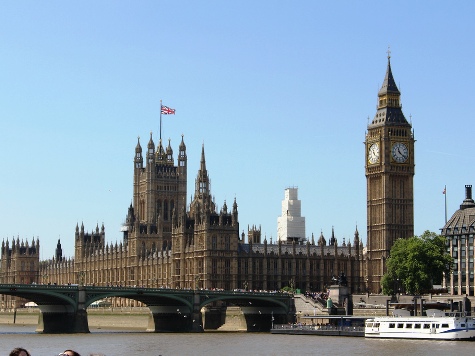
The right is rarely a forum for self-congratulation, preferring wary scepticism or angry indolence, but last month was the best month for conservatives in Britain in a very long time, and through the haze of differing party loyalties on the right, that must be celebrated.
The month began with the wake of the Carswell and Reckless defections from the Conservative Party to UKIP, which I believe were both principled and necessary decisions, to jolt the right back into the realisation that the Conservative Party’s gradual ebbing drift from ideological clarity has severe and potentially fatal consequences.
Clawing beyond the immediate panic that followed the spate of UKIP defections, David Cameron’s speech to the Conservative Party conference was the best I have ever heard him give. It wasn’t a triumph in prose or oratory, it was simply, for the first time in a decade of leadership, unswervingly conservative.
Cameron has spent ten years trying to emulate Blair’s populist new Labour project and pull the Conservative Party to the left, but ultimately conservatives have clearly succeeded in pulling him, always with gritted teeth, to the right.
His 2014 conference speech is a great and monumental victory for the campaigning right. Despite intense and organised criticism and attack, for UKIP and a constellation of groups like The Freedom Association, the Tax Payers Alliance the Centre for Policy Studies and the Bow Group that have be railing against the politics of the third way since its inception in 1997, this month offered the first bountiful harvest.
If there is to be one, this is the month that the characterless politics of centrism, liberal elitism, spin and disingenuity were marked to their grave. Every conservative, UKIP, Tory or of no fixed abode, should celebrate that. Never has a death throw been more shrill and desperate in its finality than Matthew Parris’ attempted defence of the status quo of the London elite against the people of Britain.
Equally the upper echelons of the Conservative Party’s attempt to brand Douglas Carswell as a mad traitor is starkly evident in its failure. In the end upon his victory in Clacton, Conservative MPs from across the political spectrum congratulated him, almost with elation, for returning character and spirit to politics.
I fully expect Mark Reckless to record a similar victory in Rochester and I am entirely comfortable with that, especially while the Conservative Party continues to push quotas under the guise of open primaries.
The third way modernisers bet against the ordinary conservative people of Britain, that they wouldn’t have anywhere else to go but the Conservative Party, or establishment groups and establishment media, wouldn’t be able to organise, wouldn’t be able to fight back with the high ground held by the modern political class. Like all those that have that have bet against the British people in the past, they bet wrong.
David Cameron once accused Gordon Brown of being an analogue politician in a digital age, but the current crop of Westminster politicians could barely be better described as digital politicians in a human age.
Until there is a realisation that the British people have decoded and rejected the current mode of centrally managed, robotic, homogeneous politics, there will continue to be puzzlement from Westminster at woeful polling results and lack of public trust in our system.
Perhaps fittingly, the Bow Group held a reception to crown the month with the popular but newly ‘backbenched’ MP Owen Paterson, where he laid out his vision for a conservative Britain in 2020 and announced the launch of his new think tank with the same aim: UK2020.
The people and organisations he marked out for congratulation, and with whom he quartered the future to 2020 and beyond, are those who have placed clarity of ideas and conviction before opportunism and careerism.
I believe that this is further foundation that the direction of the conservative movement is firmly set, the days of Hilton, Finklestein, Boles and Parris as any quarter of the right are numbered. The suggestion of their occupancy even now seems bizarre.
Conservatism in Britain belongs to a new generation, and we are, bizarre as it may seem, conservative.
Many have criticised those who have campaigned for conservatism and its ideas first, for splitting the Conservative Party and the movement.
I have hoped that the Conservative Party can return to conservatism, but political parties are only sacrosanct to careerists and unthinking habitualists. If the Conservative Party doesn’t return to core values it will either split or die, and a sad day it will be, but it always will be ideas that matter in politics.
I believe we have reached a new paradigm, under which conservatives can and will support both the Conservative Party and UKIP, depending on the issue and depending on the candidate. I have no doubt that this shift and groundswell of opinion will force the two parties to work together in some form, towards a conservative future.
In politics it should follow that first you have the ideas, then you win the argument, and then you win the election. If the process is performed in reverse the result is what we have today, an establishment full of career politicians who have no idea what they believe in, aside maintenance of their own positions.
It may well be that this is month when the argument was won, that that becomes the foundation of future electoral victories of which conservatives can be proud, and the nearly 20-year-long revolution on the right claimed the future of Britain.

COMMENTS
Please let us know if you're having issues with commenting.